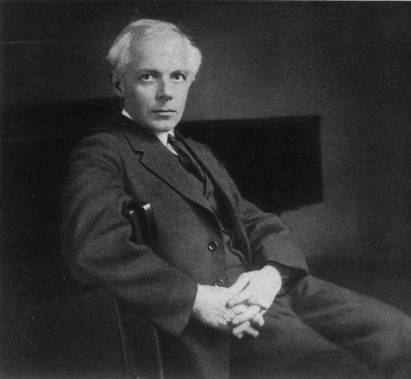
March 19, 2017 – 7pm Concert Tickets
One of the paramount qualities of the Bartók quartets as a series is that—like Beethoven’s—they exemplify growth. The problems and possibilities of string quartet writing are not of the kind that imply a single solution, no matter how perfect, nor a single form, no matter how refined. With the composition of the Sixth Quartet, then, Bartók discarded the use of “arch form” and evolved a new way of integrating four broadly contrasted movements. This final quartet was composed in the autumn of 1939, the last composition Bartók wrote while living on Hungarian soil. Its dedication is to the Kolisch Quartet, who gave the premiere performance on January 20, 1941, in New York City.
Preview on Spotify:
The unifying factor in the Sixth Quartet is a motto theme that appears at the beginning of each of the movements and is marked, each time, Mesto (sadly). At the outset of the quartet it is played by the unaccompanied viola; at the opening of the second movement, in a two-part setting in which the three upper strings play together in octaves; at the beginning of the third movement, in a three-part setting (omitting the viola); and in the fourth, as four independent voices. In each, except the last, the Mesto precedes the movement proper. In the finale, the Mesto continues and becomes the movement itself.
By the use of such a technique, Bartók opened the way to greater contrasts between individual movements, and greater independence of thematic material. Motivic relationships are still present, but not insisted upon as previously, and harmony and melody have given up much of their tight, acerbic quality. As pure sound, the Sixth Quartet is far easier to listen to than any of the preceding three, but this relaxation in tension corresponds to no lessening of mastery.
The String Quartet in a Time of War:
Benjamin Britten and His Contemporaries
Mondavi Center Presenting Program
March 19, 2017 – 2pm Concert Tickets
March 19, 2017 – 7pm Concert Tickets
After the initial Mesto, the first movement, a sonata, opens Vivace with an augmented form of what is to be the first theme, followed immediately by the theme itself. A second group and a closing group follow and are developed, and the whole is recapitulated in abbreviated form. The movement ends with a coda. The second movement is entitled Marcia. In A-B-A form, the march itself, sardonic, harsh, perhaps even funny, surrounds a middle section of tremolos, guitar-like pizzicatos and a rubato cello line abounding in glissandos.
The third movement, Burletta (Burlesque), is unquestionably humorous, though the humor is sardonic rather than jolly, and in some ways curiously Beethovenesque. Stomping rhythms abound, violinistic “laughs,” glissandos and intentional off-pitch playing are everywhere. The trio section (the movement is an A-B-A form with coda) is lyrical and rather wistful. With the fourth movement, the Mesto theme enters for the last time, drawing out of itself the entire finale. The sole exception is the entry of two themes from the gay first movement, recollected here in a kind of somber tranquility that brings to mind some of the late works of Richard Strauss. The ending is beautiful but bleak, a somber peroration to this magnificent musical account of genius in its highest estate.
—Eric Bromberger
